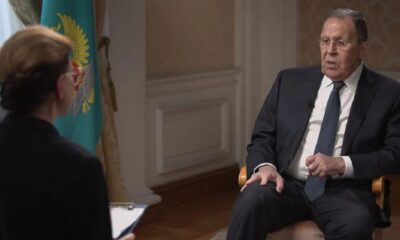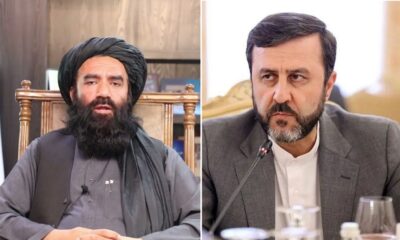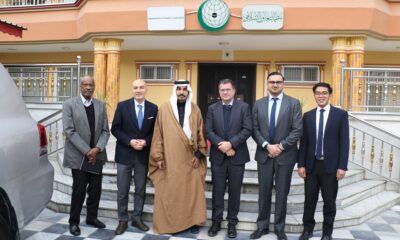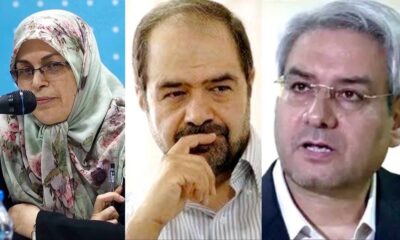Latest News
French envoy says Taliban will ‘never have total control of the people’
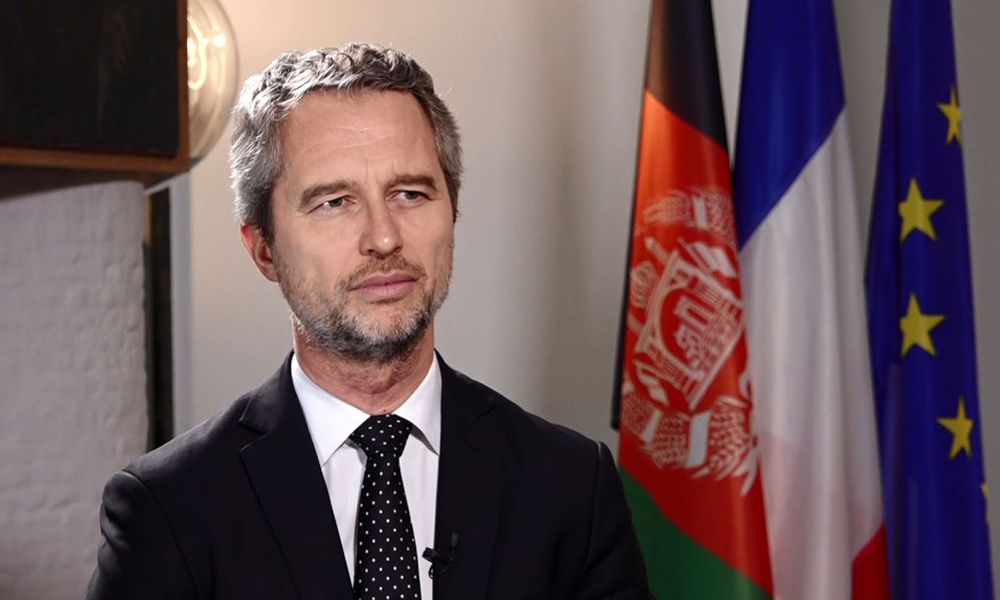
David Martinon, the French Ambassador to Kabul said this week that France is very disappointed in the slow progress around the peace talks but that the Afghan Republic has made huge concessions while the Taliban has not done the same.
In an exclusive interview with Ariana News, he said: “We felt a very strong willingness from the republican side to try and find common ground. We have seen that the republic has made huge concessions, we are still expecting the concessions from the Talib side. The Republic agreed on the demand of the US to release 50,000 prisoners; we also made sacrifices at the time,” he said adding that some of the prisoners released were “murderers of French citizens”.
“It gives us the impression that the Taliban are just in a way faking the negotiations and buying time and that they favor of [their] military action; we were disappointed by that,” he said.
“We called the Taliban to stop their military offensives and to stop their violations of human rights, especially women’s rights; whatever they believe that they can achieve but force, they will never have a total control of the Afghan people like that,” he said adding that this is why France believes there is a need for a political settlement.
He said everything that the Taliban has been doing over the past three months points to the group wanting to seize power by force.
On this point, he said “we call the Taliban to stop their military offensive,” to stop everything they are doing in the areas they control, “the looting, the killing of civilians, the repression of women’s rights; everything we get reports on is incredibly concerning,” he said.
Martinon noted that the Taliban should “think twice about what they are trying to achieve in Afghanistan” and that they should start to consider what would be good for their country and for the people.
He questioned whether the looting, destroying critical infrastructure like power lines and power grids, telecommunications networks, and roads and bridges was really in the interests of the Afghan people.
“I have my doubts and I guess everyone in the country has doubts about that,” he said.
Martinon pointed out that the Afghan people have spent the past 20 years rebuilding the country and that “if the Taliban believe that the population in Afghanistan is not attached to them (the achievements made in this time) they will be heavily surprised.”
He said “should the Taliban decide to try and destroy this heritage this legacy, this democratic legacy, should they keep on taking their distance with the values of the republic, again, the right to vote, democratic gains, freedom of expression, freedom of the press, equality for all and especially equality between men and women, well then why would we keep on supporting the country.”
He said the French leaders would not support a regime that does not respect human rights.
“I’m talking about a scenario that we should prevent, this is not the future we want for Afghanistan, we want the preservation and the strengthening of the Islamic Republic of Afghanistan.
However, France’s top envoy to Afghanistan spoke about the horrors that are being committed by the Taliban around the country.
Clearly disturbed by images and videos sent to him, he said: “I have never been I have never seen more disturbing images than the ones I keep on receiving.”
“I see videos of beheadings, you know, Afghan citizens being beheaded like goats. I saw images of a young man being stoned to death. I see images of a young man whose hand is being cut.
“I mean is that what they want for the future of their country? Really do they believe that they will be, they will gain international legitimacy by doing so?”
“This is unbearable; these are atrocities; these are videos you can’t even watch,” he said.
He pointed out however that Afghanistan should not always blame their neighboring countries for their “intrusions and interferences” and that in the event of strong national unity within Afghanistan “no neighboring country would dare to intrude into domestic policies in Afghanistan
But he said that given the current situation, all the neighboring countries have interests in common “and this is why they should step up; they should get together and try to express to the two parties that these interests need to meet some responses from them”.
He said that it is obvious that China, Iran, Tajikistan, Uzbekistan, Turkmenistan are extremely concerned about the frontier they have
with Afghanistan for several reasons.
We have to listen to what their leaders say, he said adding “they are concerned of the terrorist threats; they are concerned about migrations; there are concerns about narco-trafficking; all these concerns should in a way lead them to have a more constructive dialogue with them and to try to engage in probably in a stronger way with the two parties in conflict in Afghanistan, and probably with mostly with the Taliban,” he said.
He also stated that Afghanistan and Pakistan need each other and that their historical ties are very strong and one example is that strong trade links between the two countries.
“But if you want to establish stability and to build prosperity in the region it is obvious that both countries have to understand what can be the long-term economic interest and obviously they should work even more together.”
He said however that he did not think there was any country in the region that “welcome the establishment of a Taliban regime in Afghanistan”.
“The Taliban have to understand that any form of the long-lasting disorder plus violations of human rights and no respect for democracy, the democratic legacy of the republic, can only have devastating consequences on the neighbors and the neighbors won’t accept that because they won’t be able to handle you know waves of Afghan migrants trying to escape that strange regime (Taliban) from another century,” he said.
Martinon said that everything the Taliban is doing is being scrutinized by the neighboring countries and even by Iran, and by China – who is also concerned about their frontier.
Latest News
Terrorist activities observed along Afghanistan borders, says Lavrov
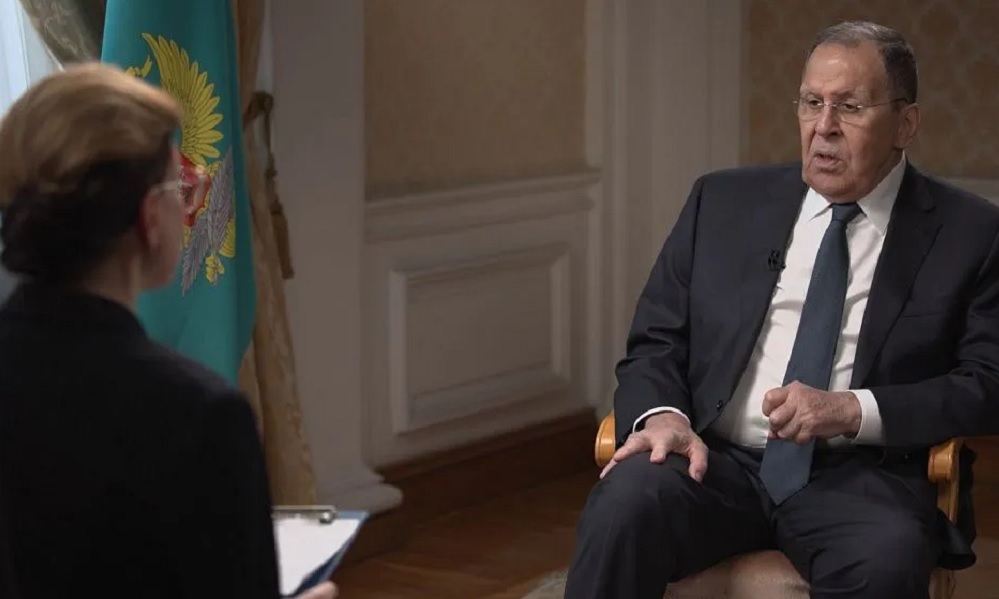
Terrorist activities continue to be observed along Afghanistan borders and along the India–Pakistan–Afghanistan corridor, Russian Foreign Minister Sergei Lavrov said in an interview published on Monday.
Speaking to Russia-based media outlet TV BRICS, Lavrov pointed to ongoing concerns in the Middle East, including its Asian regions.
He highlighted the importance of collaboration with India at the United Nations to advance a global counter-terrorism convention.
Lavrov stated that while the draft convention has already been prepared, consensus on its adoption has not yet been reached.
Russia has repeatedly expressed concern about militant threats from Afghanistan. The Islamic Emirate, however, has dismissed the concerns saying that it will not allow Afghanistan’s soil to be used against any country.
Latest News
Afghan border minister holds phone talks with Iran’s deputy foreign minister
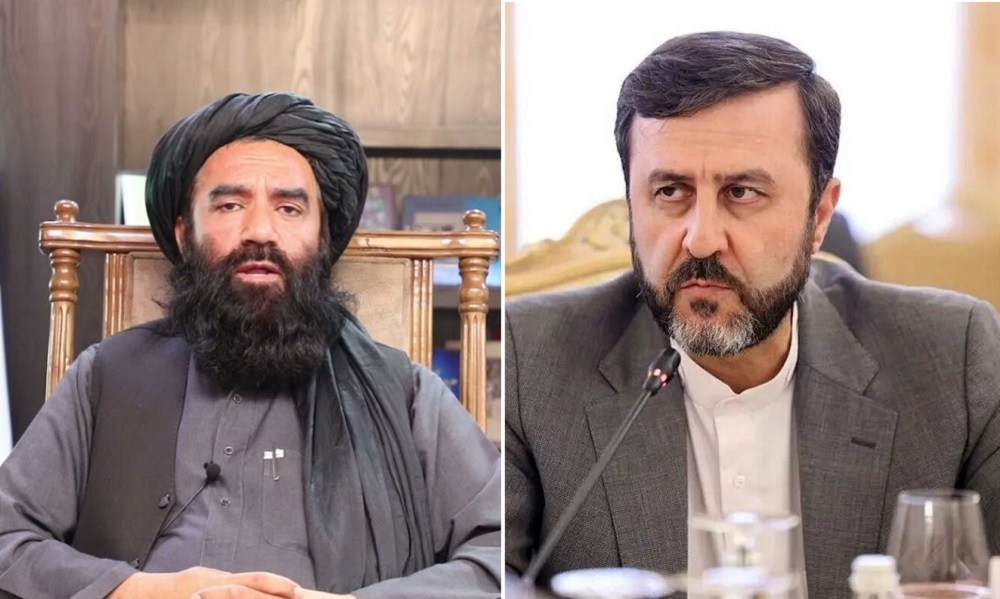
Noorullah Noori, Afghanistan’s Minister of Borders and Tribal Affairs, held a phone conversation with Kazem Gharibabadi, Iran’s Deputy Foreign Minister for Legal and International Affairs, to discuss bilateral border cooperation.
According to the Iranian news agency IRNA, both sides reaffirmed their commitment to strengthening border collaboration, with a particular focus on the ongoing renovation and updating of border markers. They also agreed to accelerate joint technical and legal meetings to enhance coordination.
As part of the agreement, the next meeting of senior border officials from Afghanistan and Iran is scheduled to take place in Iran in 1405 (2026–2027).
Latest News
OIC Kabul mission chief meets German envoy to discuss Afghanistan situation
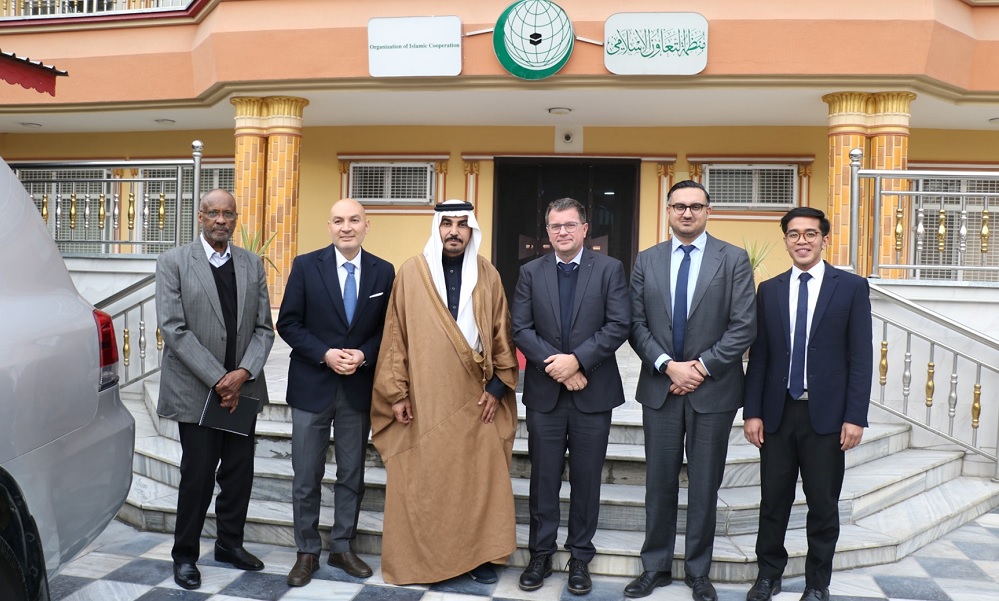
The Director General of the OIC Mission in Kabul, Mohammed Saeed Alayyash, met on Sunday with Rolf Dieter Reinhard, Head of the German Liaison Office for Afghanistan in Doha and Acting Chargé d’Affaires of the German Embassy in Afghanistan.
During the discussion, both sides exchanged views on the latest developments in Afghanistan. They focused on the security situation, as well as the humanitarian and economic conditions faced by the Afghan people.
The two officials also reviewed recent political developments and broader challenges in the country, highlighting the need for continued international engagement and support.
The meeting emphasized the importance of ongoing cooperation and coordination between the OIC Mission and the German side in addressing Afghanistan’s challenges and in supporting efforts to promote stability and improve the humanitarian situation.
-

 Latest News2 days ago
Latest News2 days agoAfghanistan to grant one- to ten-year residency to foreign investors
-

 Latest News4 days ago
Latest News4 days agoTerrorist threat in Afghanistan must be taken seriously, China tells UNSC
-

 Sport5 days ago
Sport5 days agoAfghanistan beat West Indies in final T20 WC warm-up match
-

 Sport3 days ago
Sport3 days agoIndonesia shock Japan to reach historic AFC Futsal Asian Cup final
-

 Sport4 days ago
Sport4 days agoMilano Cortina 2026 Winter Olympics: What You Need to Know
-

 Sport2 days ago
Sport2 days agoIran clinch AFC Futsal Asian Cup 2026 in penalty shootout thriller
-
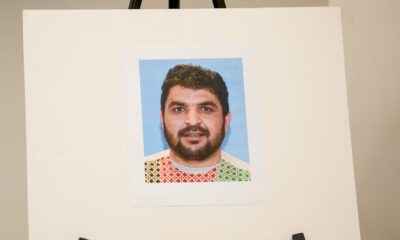
 Latest News4 days ago
Latest News4 days agoUS Justice Department to seek death penalty for Afghan suspect in National Guard shooting
-

 Latest News2 days ago
Latest News2 days agoAfghanistan says Pakistan is shifting blame for its own security failures


